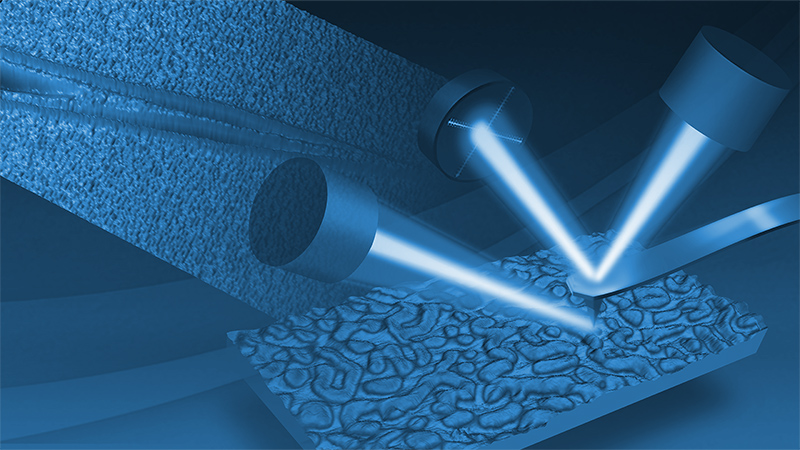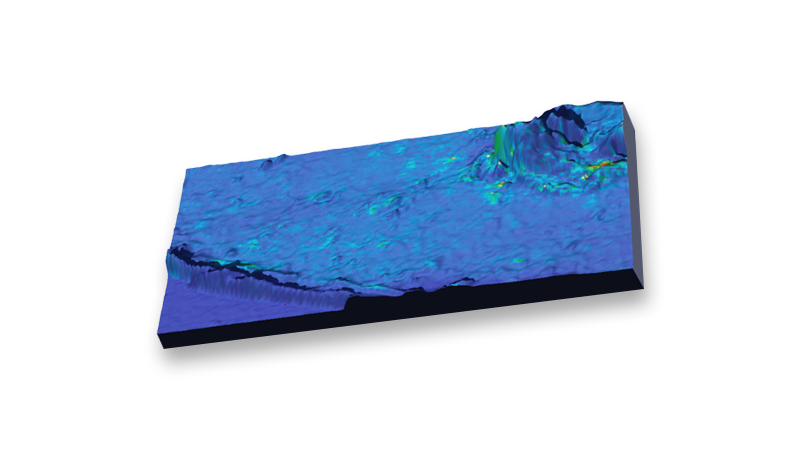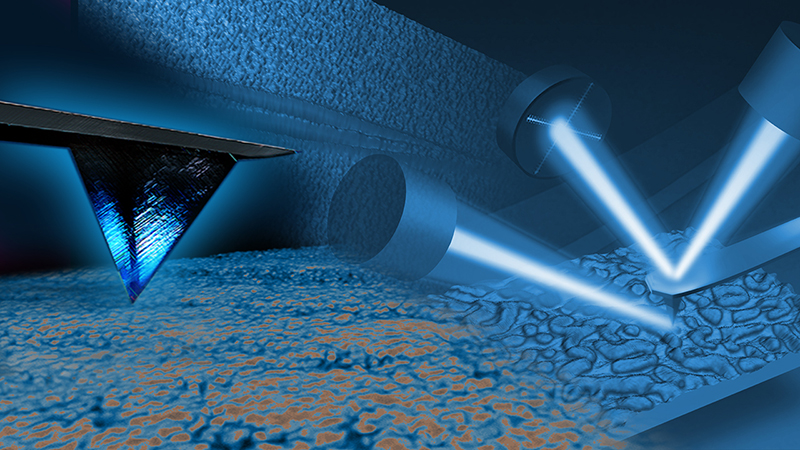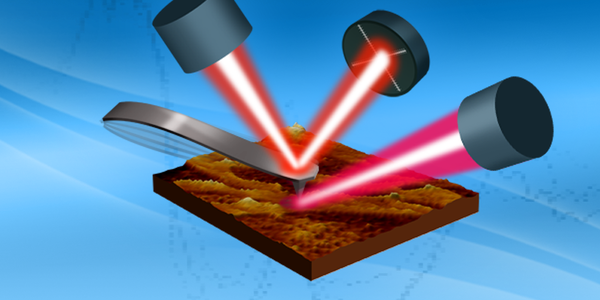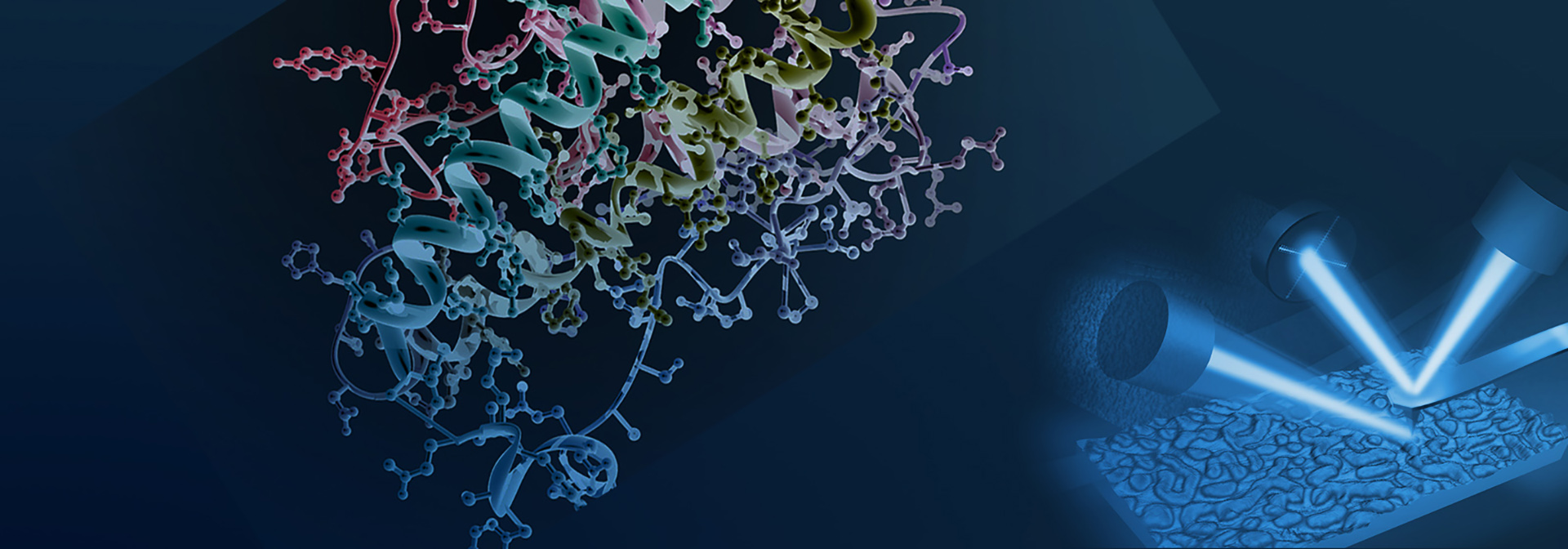
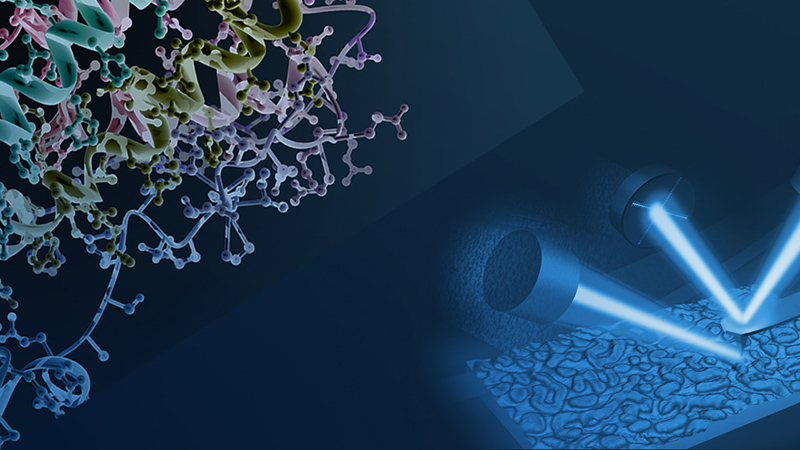
Unraveling Molecular Structure and Interactions with Single Molecule Nanochemical Imaging and Spectroscopy
Nano-medicine, materials science, and biotechnology research demand a deeper understanding of (bio)-molecular systems, their interactions, and the structure-activity relationship of biomolecules.
This webinar focuses on the use of novel AFM-IR methods to study biomolecular processes and functional materials in native liquid environments and, for the first time, down to the single biomolecule scale.
Understand the Abilities of Infrared Nanospectroscopy of Biological Systems
Join us and our special guest speaker, Dr. Francesco Simone Ruggeri (Wageningen University, Netherlands), for a talk on unraveling molecular structures and interactions with single-molecule nanochemical imaging and spectroscopy.
Dr. Ruggeri, a pioneer in this field of science, has pushed the boundaries of modern microscopy and spectroscopy to study biomolecular processes and functional materials. He has demonstrated that infrared nanospectroscopy can be used to determine the chemical fingerprint and secondary structure of biological samples and materials in native liquid environments and, for the first time, down to the single biomolecule scale. His approach has led to new insights into the formation and structural characterization of the misfolding of proteins and their correlation with the onset of neurodegenerative disorders, and, by taking inspiration from nature, the production of new, sustainable substitutes for pollution-causing plastics.
From the presenter:
The development and application of photothermal infrared absorption nanospectroscopy (AFM-IR) was a real breakthrough for the analysis of heterogeneous (bio)-molecular systems and their interactions, from the single molecule scale up to living organisms. As a major advance in the field, we have demonstrated the achievement of detecting single protein molecules by introducing off-resonance, low power and short pulse infrared nanospectroscopy (ORS-nanoIR).
By pushing the sensitivity of AFM-IR to its current limit, we have proven that the secondary structure of single protein molecules can be determined with an accuracy similar to that obtained in bulk by IR spectroscopy (Nature Comm., 2020). Our approach further enables investigation of:
- The secondary structure (Advanced Science, 2021) and molecular interaction fingerprint of the amyloid species involved in the onset of neurodegenerative disorders (Nature Comm., 2021).
- The interaction of these supramolecular assemblies with an organic FDA approved drug capable of preventing the disease in animal models of neurodegeneration.
- The properties of organic and bio-organic functional materials
- The chemical heterogeneity of artificial model membranes (Advance Functional Materials, 2021) and perovskites (Science, 2021).
- The structure of the functional protein assemblies that occur functionally in nature (Small Methods, 2021) and that are promising candidates for the development of a novel class of biocompatible and sustainable biomaterials (Nature Nanotechnology, 2020).
This talk will also cover our goal to expand the capabilities of nanoscale vibrational spectroscopy to shed light on the structure-activity relationship of biomolecules for applications in nano-medicine, materials science and biotechnology.
Find out more about the technology featured in this webinar or our other solutions for the single-molecule investigation of biomaterials:
Featured Products and Technology
Speaker
Dr. Francesco Simone Ruggeri, Assoc. Prof. of Nanoscale Microscopy and Spectroscopy, Wageningen University and Research (WUR), Netherlands
Dr. Francesco Simone Ruggeri obtained a PhD in Biophysics in 2015 at the École Polytechnique Fédérale de Lausanne, Switzerland. Following his doctorate, he completed an independent Jr. Research Fellowship at the Dpt. of Chemistry at University of Cambridge and at Darwin College (UK) where he also received a Master of Arts for his management role of the college. At WUR, he is also Chairman of the Nanoscopy Facilities for Analytical ChemisTry (NanoFACT).
Dr. Ruggeri's research lies at the intersection of physics, chemistry, and biology, with a particular emphasis on developing and applying transformative nano-analytical imaging and spectroscopy that allows multimodal mechanical and chemical characterization. His work has significantly advanced the field of AFM-IR, enabling chemical fingerprinting and structural analysis down to the single-molecule level and in liquid environments.
Dr. Ruggeri’s group applies these technologies to study biomolecular systems, focusing on the protein phase transitions underlying the onset and progression of neurodegenerative diseases, such as Alzheimer's and Parkinson's. Their work also extends this approach to the study of functional biomaterials, perovskites, polymers, and micro-/nanoplastics. Dr. Ruggeri has authored over 80 peer-reviewed scientific articles, published in journals such as Nature, PNAS, and Science. He has an h-index of 45 and has been cited over 6,700 times.
